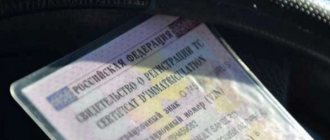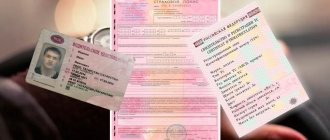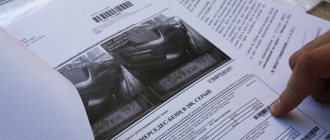Is it even possible to overdue a fine?
Yes, sure. And we will start with the deadlines when an administrative fine is not yet considered overdue. We need to understand this in order to further deal with threats of unpaid debt.
So, before you fall behind on your payment, there are 2 important periods:
- floating period for the resolution to enter into legal force - 10 days or more (why, we will describe below) - part 1 of article 30.3 of the Code of Administrative Offenses,
- the fixed deadline for paying the fine is 60 days, after which the delay begins (Part 1 of Article 32.2 and Article 31.1 of the Administrative Code).
These 2 time intervals follow each other - until the resolution comes into force, the countdown of the deadline for paying the fine will not begin.
As for the floating entry date, it depends on whether you appealed the fine or not:
- if the fine has not been appealed within the allotted 10 days, then it enters into legal force and the payment deadline of 60 days begins to count,
- If you filed a complaint against the fine, the entry into force is delayed until it comes into force, unless the decision is canceled as a result of the complaint.
Below, to make it easier to understand the terms of fines, we will consider the standard period: 10 + 60 = 70 days for paying an administrative sanction.
Now let's look separately at all the deadlines that in one way or another relate to fines, what the consequences of delaying them are, what to do in certain cases and other subtleties of administrative law!
How to pay through the State Services website
Government services also do not charge any fees for paying a fine online.
Step 1. Registration on the site. You will need to prepare your passport, SNILS, remember your email address and contact phone number.
Step 2. If you have already registered on the site, you just need to log into your personal account.
Step 3. At the top of the screen, find the “Payment” button, click on it, and then click on the “Pay by receipt number” button. You can do this: on the right side of the screen, find the “Payment by receipt” button, it is located in the blue field.
Step 4. In the empty field, enter the number from the fine receipt, if necessary, fill in all the necessary fields (the system provides hints automatically, you cannot miss anything).
Step 5. Pay your administrative fine.
To pay fines, you can use a bank card or electronic wallet.
You can pay the receipt through “State Services” by logging not into the website or application, but through Sberbank Online. This doesn’t make much sense if you have both applications installed, but paying through Sberbank will be somewhat easier.
Discount period for fines – 20 days
And this is a “special” period, different from others in this article and regarding fines by the beginning of its effect.
Unlike other fine periods, the discount period begins not from the date of entry into force of the administrative decision, but from the date of its issuance. And the subtlety here is that for “chain letters” from auto-fixation cameras, the discount period may already have passed when you even see the letter and learn about the fine.
Fortunately, legislators have provided for this moment... However, after almost 5 years of existence of this law. The Constitutional Court ruled that if this deadline is missed for objective reasons, then the discount period is extended, but only at the request of the person against whom the decision was made. Corresponding changes have also been prepared in the Administrative Code.
The opportunity itself is regulated by Article 32.2, Part 1.3 of the Code, and the discount does not apply to the following traffic violations:
- repeated driving in a vehicle not registered with the traffic police,
- all violations of the Rules related to intoxication, including refusal of a medical examination,
- repeated speeding,
- repeating a red traffic light,
- re-entering the oncoming lane,
- driving against the direction of traffic on a one-way road,
- traffic violations that cause harm to the health of other road users.
Cases of legal non-payment
The very fact of violating traffic rules cannot go unpunished. For each failure to comply with the rules, one or another measure of influence will be imposed on the motorist. In fact, it is absolutely impossible to avoid punishment, however, there are examples when a person ceases to be a defendant in an administrative case not because of himself, but due to failures in the activities of government institutions.
If, two months after the incident, the person received a “chain letter”, that is, a fine, there is no need to pay it. Forced collection will be considered illegal.
Separately, it is necessary to designate the time periods that are allocated to authorized entities in order to impose a fine on a person and demand its recovery:
- Only two months are provided for making decisions; after the expiration of such a period, the fact of a violation is not considered a basis for this.
- A three-month period is provided in the event of a ruling being made during a case in court.
Establishing one of these options deprives the authorized body of the opportunity to punish a person, which is considered a legal means of avoiding paying a fine.
Of course, cases where the decision of traffic police officers to collect a fine seems unreasonable allows for the application of an appeal procedure. However, most often such actions do not give the desired result. Therefore, even if a citizen is convinced that he is right, but could not prove it, he will have to pay a fine, otherwise it will be a violation of the established procedure and will entail additional coercive measures.
Fine from bailiffs: from the beginning of the delay to 2 years
So, after the standard 70 days given for the entry into force of the resolution and payment of the fine, the latter can be transferred for compulsory execution . This is what is called the transfer of the fine to the FSSP, which, accordingly, is engaged in forcibly “knocking out” the debt from you.
And the bailiffs can carry out the following actions to force you to pay the fine:
- withdraw the amount of the overdue fine from your bank cards,
- come to your house to collect property to pay off the debt to the traffic police,
- ban registration of your car,
- seize your property, including the same car.
When the traffic police receives information about an overdue fine to the bailiff service, they are first of all obliged to send a notice of voluntary repayment of the debt. If this requirement is not met, the bailiff in whose hands the case is located initiates enforcement proceedings, and within the framework of this proceeding, imposes the penalties listed above.
It is also important to remember that when initiating enforcement proceedings, you will be charged an additional enforcement fee - an additional payment for this proceeding. As of 2021, it is 1,000 rubles (regarding overdue traffic police fines).
Let's take a closer look at each of these measures to influence debtors!
Collection of overdue payments from a bank card
The bailiffs do this first, since it is easiest to find the “client’s” accounts and collect the amount of the overdue fine on them. This matter is automated between the FSSP and banks and occurs almost automatically.
First, the bailiff makes a request to almost all banks about the availability of accounts for such and such a debtor. If there are any, a writ of execution is sent to the bank, and if there are funds in the accounts, the bank is obliged to transfer them to the FSSP along with the enforcement fee.
Prohibition of car registration
It is possible even if the fine is 500 rubles overdue (the minimum amount of sanctions for traffic violations) and even for several days. The ban (also called “restriction of registries”) is that you will not be able to carry out any registration procedures at the traffic police MREO.
And it’s not just about buying a car and registering it. Difficulties will arise when trying to:
- deregister a car for any reason,
- stop registering when selling a car,
- Recover a lost vehicle registration certificate.
It is important not to bring an overdue traffic fine to the point of imposing such a ban also because it often takes a long time to be lifted even after the debt is paid off. If you think that as soon as you decide to sell or buy a car, you will simply pay off the debt and solve the problem, then this is not so. A month or even more may pass between the debt being paid off and the restrictions being lifted.
Arrest
This is the most unpleasant and risky thing that comes with an overdue fine. This same reason answers the question of whether it is possible to drive with an overdue fine.
In case of long-term debts, bailiffs are very fond of seizing, first of all, the car (as a rule, at this point the registration ban has been in place for a long time). This means that the seized property is subject to surrender and storage at a special site with the bailiffs until execution of an overdue fine (article of the Federal Law on Enforcement Proceedings).
Arrest cannot be applied if the amount of debt for one proceeding (that is, for one of the overdue traffic police fines) is less than 3,000 rubles.
The most sinister aspect of the car seizure is the joint raid by the traffic police and bailiffs. When an inspector stops a car (the bailiff himself cannot stop cars on the road) that has been seized, a representative of the FSSP can easily seize it right on the road.
Statute of limitations for debts owed by bailiffs
In the subtitle we mentioned that an overdue fine is kept by the bailiffs for 2 years. This is also regulated by legislation relevant for 2021.
The fact is that if the bailiffs were unable to collect the fine within 2 years, then it is illegal to continue trying, and the fine “burns out.” The countdown of this period begins from the date of entry into force and is regulated by Article 31.9 of the Code of Administrative Offences.
1. A resolution on the imposition of an administrative penalty is not subject to execution if this resolution has not been enforced within 2 years from the date of its entry into legal force.
But this is only relevant if you were not hiding from enforcement. This means that the bailiffs did not prove that you deliberately hid money and property, hid from appearing before the bailiff, and the like.
Where to pay if the fine is from the bailiffs?
There are 2 options to pay for an expired traffic police sanction if it is already being executed by the bailiffs:
- at the traffic police,
- in the FSSP.
The subtlety of the direction of payment is that if you pay directly to the bailiffs, how soon will the State Traffic Inspectorate update information about this? And if you pay to the traffic police, how soon will the bailiffs stop bothering you? And what if you have already paid, but the last one charged the fine to your bank card?
We answered all these questions in detail in a separate article about this.
Nuances
Failure to pay a traffic fine will result in additional liability. It is worth paying attention to some practical features that arise in such situations:
- In addition to an additional fine, an enforcement fee may be collected for each enforcement proceeding. The minimum amount is 1000 rubles. If the initial penalty was 500 rubles, such a punishment is quite significant.
- Payment of the enforcement fee can be avoided by paying off the debt before the initiation of proceedings.
- A citizen has the right to ask the court to apply an alternative punishment or, conversely, to use a monetary penalty instead of arrest or labor. But the final decision is made only by the court, guided by available factors and general principles of legal proceedings.
- In practice, fines of double the amount are most often applied.
- A person cannot be held liable if the statute of limitations has expired.
It is not recommended to take the traffic police fine to the point of applying additional liability, since the matter may not be limited to double penalties. The person is charged an enforcement fee, and other liability measures are applied. If it is impossible to pay immediately, you can ask the court to defer execution or pay by installments.
Double fine or arrest for delay
Another reason why it is better not to drive with an expired traffic police fine is part 1 of article 20.25 of the Code of Administrative Offenses. It provides for the imposition of another penalty for a simple violation - failure to pay the assigned fine on time - that is, for late payment.
Only judges can prosecute people under articles that provide for arrest; traffic police officers are not authorized to do this. And the procedure for punishment under this article of the Code looks quite standard:
- a traffic police inspector stops you on the road,
- searches through the database of available traffic police fines and finds expired ones,
- takes you to the department to await trial (the wait most often lasts no more than a day) or there have been particularly “limitless” cases where, right on the road, the inspector contacts the judge via Skype, and he imposes a punishment - most often an arrest for 5-10 days.
The scheme where you are taken to court directly from the road is illegal!
The fact is that all procedures that provide for the restriction of human rights are prescribed by law and regulated in Orders (more precisely, regulations). If you are taken away to await trial, this is called detention. It is possible only in exceptional cases for timely consideration of the case. An inspector can only consider a case that requires your presence in court to be timely, and this is true from the point of view of the law. But this is not a basis for detention, because you are not going to avoid appearing in court - just tell the inspector exactly that.
And employees can also call it delivery. And this is also incorrect, because delivery to the Code of Administrative Offenses is described as transfer to the department for the purpose of drawing up a protocol if its drawing up is impossible on the spot. And it may be impossible for objective reasons (for example, you do not have a passport), and not because, for example, the inspector himself does not have protocol forms.
According to the law, the officer can only issue a report against you for an overdue traffic fine and then send this report to the court. And you will be summoned to court.
If you have been subjected to a legal penalty for detecting a late fine, then it is best not to appear in court. In this case, arrest cannot be used without the presence of the person against whom the case is being conducted. As a last resort, if you fail to appear, and if the judge stubbornly wants to arrest you for an overdue debt, he can arrange for you to be brought to the courtroom.
Statute of limitations under Article 20.25
It is important to understand that the possibility of imposing a double fine or arrest for overdue payments has its own statute of limitations.
For late payment, a fine under Article 20.25 can only be imposed after the payment period has expired - 70 days and after that for 3 months (Article 4.5 of the Administrative Code). The main thing here is not to confuse days with months.
For example, you were fined on March 10, 2021. You did not appeal it, and it came into force on March 21 (the period in administrative law begins the next day). Now you have 60 days to pay - until May 22. And just between May 23 and August 23, 2021, you may be charged with an overdue traffic fine. That is, if you are overdue for a year, then they will no longer be able to arrest you and impose a double fine on you.
So, for convenience and better understanding, let us now present all these periods of delay in a traffic police fine in the form of a visual info-graphic:
Repayment features
Practice often shows that failure to pay fines occurs not because a person does not want to fulfill an obligation, but because of a lack of funds to do so. In such a situation, drivers try to find loopholes and not completely avoid making payments, but do it in parts or after a specifically set delay time.
Obtaining privileges when paying a fine is allowed only if there is a corresponding court order.
Before writing an application to the judicial authority, you should decide what repayment procedure you need to receive:
- deferment, the period of which is one month (confirmation of the grounds is required that it is impossible to make payment within sixty days);
- installment plan, which involves dividing the amount of the fine over three months so that the person pays the money in installments.
The last option is considered more preferable.
However, such privileges do not apply to foreign citizens, even if they have valid reasons. So, to use the above opportunities, you should draw up an application and attach documents to it (passport, resolution, payment receipt, papers confirming the grounds for receiving such relief from the state). If the application is accepted, a plan will be drawn up for the citizen to repay the administrative penalty.
It should be understood that the application must reflect not only information about how difficult the driver’s financial situation is, but also the citizen’s intention to pay a fine in the future, which confirms the absence of intent to avoid fulfilling the obligations imposed on the person.
Payments will be made using standard methods. You can pay through a bank, use a terminal, go to the State Services website and, using the number of the documentation issued after consideration of the issue by the court, deposit funds into the current account of a government agency. The principle of action is similar to the payment of taxes and debts thereon.
Repetition period
Another threat to driving with expired traffic fines is that the Code of Administrative Offenses differentiates punishments for the same traffic violations if they:
- committed for the first time,
- committed again.
Under the circumstances in the last paragraph, the penalties are more severe. For example, for driving into the oncoming lane (Article 12.15 of the Administrative Code), the punishment is provided in the form of a fine of 5,000 rubles or deprivation of rights for 4-6 months. And if you violate this rule again, you may be imprisoned for a year.
What is repeat violation? This is if you have already committed the same thing, and the date of full execution of the punishment for it has passed less than 1 year. Full execution of the punishment is precisely the payment of the fine (or the end of the deprivation of rights).
Again, an example: you exceeded the speed limit by 70 km/h on January 1, 2021, for which you received a fine of 2,500 rubles under Part 4 of Article 12.9 of the Administrative Code. You paid for it on January 30, 2021. Consequently, the repetition period for this violation will last until January 30 of the next year - if you are caught on camera during this period, then a fine will be issued under Part 7 of the same article, which provides for a fine of 5,000 rubles, and if the inspector stops you in excess on the road, you will be disqualified from driving for a year.
Where to get payment details
At the end of the Resolution, they must also indicate the details to which money should be transferred towards the administrative fine. You will need to indicate:
- name of the recipient (for example, Novgorod Department of the Federal Antimonopoly Service of Russia);
- TIN and checkpoint;
- personal account (if necessary);
- budget classification code (KBK);
- OKTMO;
- the name and city of the bank to which the administrative fine will be received;
- BIC;
- checking account.
The purpose of payment for the fine must also be specified in the form of a supporting document (FAS Resolution with number and date).











